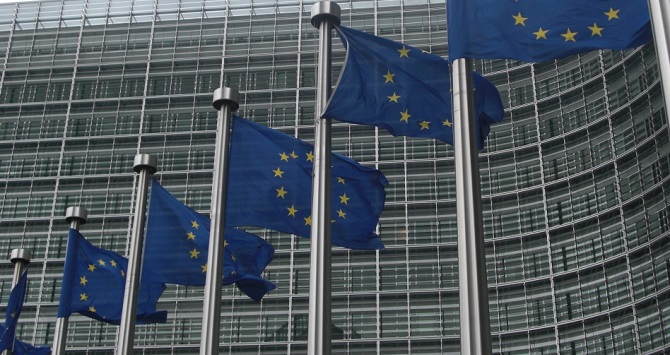 Digitalization is transforming the possibilities of education, from initiatives to deliver basic education in the global south to programmes at the world’s leading teaching universities. Following the third meeting in LSE’s Digital Life series in June, Visiting Fellows Jonny Shipp and Dr Ioanna Noula discuss how education is responding to digitalization. They argue that relevant skills and a familiarity with the digital ecosystem are essential, but that a third outcome is also vital for a better digital life: to create citizens who are inspired, motivated and equipped to challenge institutional power and reshape the world.
Digitalization is transforming the possibilities of education, from initiatives to deliver basic education in the global south to programmes at the world’s leading teaching universities. Following the third meeting in LSE’s Digital Life series in June, Visiting Fellows Jonny Shipp and Dr Ioanna Noula discuss how education is responding to digitalization. They argue that relevant skills and a familiarity with the digital ecosystem are essential, but that a third outcome is also vital for a better digital life: to create citizens who are inspired, motivated and equipped to challenge institutional power and reshape the world.
The digitalization of education
In the most privileged schools, data-driven technologies are already deployed to support teaching and learning, bringing efficiency and an improved learning experience. Students experienced in digital technology are more likely to meet the expectations of employers. Intelligence Unleashed, Pearson’s recent project with UCL’s Knowledge Lab on the use of artificial intelligence in education, illustrates how learning is being transformed. Today’s technology could support student learning at a scale previously unimaginable, providing one-on-one tutoring to every student, in every subject. Intelligent support can help educators tailor their interventions to the needs of individual learners, so they get the right support at the right time.
In a variety of settings, the use of technology to personalise education will stop individual children and young people from being left behind. Over 50 million children in the world do not have access to any kind of education. ProFuturo, a major digital education project is using digital technology to bring high quality basic education to two million children and teens. The project will reach 10 million children by 2020. It is currently present in Africa and Latin America, and will soon expand to Asia. Whilst digitalization is a huge enabler, the project is also addressing the risk of widening inequality: if access to devices and connectivity are the starting point, the impact on people who do not have this is multiplied. ProFuturo avoids this by working with local partners and adopting locally developed technology.
More than six million people from across the world are learning with FutureLearn, a digital learning platform from the Open University that makes learning an enjoyable and social experience. Around a third of learners on the platform enrich their experience by engaging in conversations prompted by the platform. The social experience is a key component of the platform, setting it apart from other “MOOC” (Massive Open Online Course) platforms and demonstrating that social learning can work at scale.
Where’s the creative down time?
Continuous tracking and surveillance are inherent features of digital education platforms, being simultaneously the source of both the huge power and advantages they can bring, and also of underlying tensions and complexities. Such an environment of continuous monitoring may limit the scope of ‘rehearsal’ in learning: getting things wrong, and then gradually learning to get them right is traditionally how we learn. Similarly, this intense form of overseeing students’ activity may deprive young people of the informal zones that give them the opportunity to get things wrong and develop themselves as creative and committed citizens. As assessment-orientation is intensified, spontaneity and creative challenge is inhibited.
This new reality of digital education also raises questions about the way personal data is collected from learners and analysed to improve their experience and potentially to underpin new business models. Is education another context in which the new trade in personal data may be enabling public services in return for access to personal profiles?
The third goal of education
An evaluation of the digitalization of education must look at what education itself aims to achieve. This enables us to consider how education is being shaped by digitalization, and to identify the risk that it misses a vital element. In a 2015 article, Gert Biesta of Brunel University London proposes three goals of education: the “qualification”, “socialisation” and “subjectification” of students. Digital education platforms and initiatives tend to focus on the first of these, “qualification”. This means the acquisition of skills, knowledge and dispositions. By becoming immersed in digital learning in its various forms, learners also achieve the second goal: to be “socialised” in the digital tradition, culture and ways of being and doing. But through the digital transformation of education, the third goal, “subjectification”, may be receiving too little attention. .
As a “state-sponsored” institution, education serves to reinforce society’s vision and values, developing democratic participation and so shaping human civilization. Biesta’s third goal of “subjectification” is the aspect of education that develops young people into responsible citizens, able to engage critically with the world around them, interested and motivated to challenge, advance and recreate society. These citizens hold the answers to today’s crises of fairness and equality.
In today’s data-driven global world, as technological decision-making becomes inextricably linked with democracy, it is more important than ever to equip people to engage with power and challenge institutions to shape a better, fairer and more equal world.
Educating for citizenship
“Digital citizenship” is often understood in relation to technical skills, safety and responsible use of digital technologies. But this notion of citizenship misses the vital component of the social and political issues of the real world. Without denying the importance of technical skills, and whilst welcoming a new wave of attention to how young people are socialised in the digital world, we argue that digital citizenship education must go beyond the need for balance and safety to generate a more enabling, critical engagement. In doing so, it will help deliver Biesta’s third goal of education.
Educators will use technology and promote its use by their students, but they must also equip their students to deploy it in support of their own, human, emancipation. People should be able to stand apart from technology, as well as to immerse themselves within it. Ultimately, this is what makes us human. To model this kind of citizenship, ”real-life” engagement should permeate the “teacher-student-knowledge-technology pedagogical tetrahedron”. Teachers are at the front line of digitalization. Their role is crucial in helping students to develop healthy digital lives. The important issues of digital lifestyles, digital competence and digital literacy should not be left to one side as students lock away their smart phones at the start of the day.
Enabling better digital lives
At the intersection of data analytics and public services like education, healthcare and the media, we see the ethical challenges of a generation. A “sustainable” approach requires that the new possibilities brought to us by information technology are fully embraced, but without compromising the humanity and prospects of future generations. This will require stronger and bolder governance, challenging the notion that opportunities for digital development must be balanced with concessions to fundamental rights of privacy, dignity, freedom of thought and speech.
The new wave of digitalization should not deprive digital citizens of their agency. A better digital life is one in which people are empowered to decide for themselves how to harness the power of data and digital technologies. This point should not be missed in today’s changing educational environments. From London to the communities of the global south, society must ensure, possibly through new forms of governance, that people are the first beneficiaries of digitalization and that inequality and division are not intensified by “digital” greed.
The authors would like to thank Laurie B. Forcier (Pearson), Simon Nelson (FutureLearn), Paula Valverde (ProFuturo), Neil Iles (La Sainte Union Catholic School) and Professor Nick Couldry (LSE) for their contribution to LSE’s Digital Life series. This post gives the views of the author and does not represent the position of the LSE Media Policy Project blog, nor of the London School of Economics and Political Science.






4 Comments